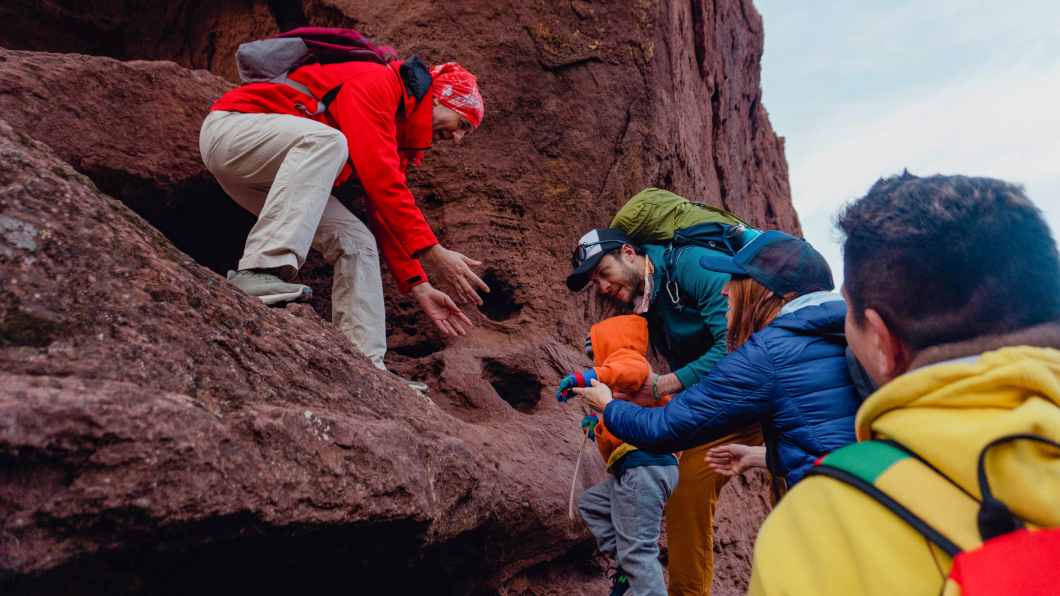Responsible travel, also known as sustainable tourism, is the concept of traveling in a way that minimizes negative impacts on the environment, local cultures, and communities. It involves being mindful of the impact of tourism on the places you visit and making an effort to minimize any negative effects.
Travel Sustainably
Sustainable travel is not about sacrificing the fun part of travel. In fact, sustainable travel is about traveling while being socially and culturally aware of and kind toward the world around you. Doing small things consciously does contribute to making a big impact. Utilize your responsibility as a traveler of changing the lives of people around you. In other words, Sustainable travel encourages travelers to become responsible tourists.
1.Find the authenticity
– Respect the local culture, customs, and dress code. Kindly avoid any act which is going to hurt their system.
-Seek permission before you take their photo and video. There are certain areas where photography/videography is restricted as part of religious reasons and security reasons.
-When you visit the sacred forests and similar areas respect their belief, rules, and regulations. They insist you not take anything from the forest (Not even the dust and dry leaves). You might see a lot of interesting plants, seeds, flowers, etc. Please do not carry it out of the forest
-If you have doubts about something, feel free to ask them. But make sure that you ask in a polite mode.
2. Say No to plastic & be mindful
-Do not forget to carry your own water bottle. The everyday morning when you start from your hotel/homestay ask them to refill the bottle and carry it with you. On the way, there are options to refill the water. Or you can ask any shop/hotel for refilling the water. They will give you hot water if you want. The 15-25 rs you can give them as a token of thanks if you wish (The same amount you will be spending on plastic bottled water). If you are worried about the potability of water, invest in a water sterilization tool like SteriPen. This is of great use in countries where tap water is not potable.
-Try to carry reusable bags for shopping. (Fruits, clothes, crafts,… etc)
-Instead of maggie, you may ask for rice and other local dishes.
-Instead of packed food like lays, chips, and biscuits go for locally available fruits and nuts. You can carry a small box, which will help you to refill. Support the local community and local businesses
3. Shop local & avoid over bargaining
-For some of us, bargaining is a skill and we show it mainly when we travel. But remember there are people whose only income is these tourism products and services. If you feel reasonable then please don’t bargain. Sometimes you might feel the price varies from your hometown. Then check for the reason. Raising the voice is not an option.
4. Watch your waste
-Do not throw garbages. Keep it with you until you find a proper place/dust bin to dispose of it.
-Feel free to pick up trash on the way to hike the waterfalls. You might inspire other travelers to imitate you. Bingo!!! You just did a cleanup drive while trekking/hiking to beautiful waterfalls.
5. Reduce your environmental impact
-Choose eco-friendly accommodations and transportation options when possible.
6. Educate yourself
-Read and research more about eco traveling
-Join in communities of like-minded people (eg: FOLKA Community)
-Follow advises from SMEs
By following these guidelines, you can help to ensure that your travels have a positive impact on the places you visit and the people who call them home.
Remember EVERY PLACE IN THIS EARTH WAS BEAUTIFUL. We, humans, invented pollution. Be a protector, not a destroyer.
Check out how FOLKA educates our customers before a trip with us.






Why FOLKA Promoting sustainable travel and trying to increase the number of responsible travelers?
There are many benefits to responsible travel, both for the traveler and for the local communities and environments that are visited. Some of the main benefits include:
1.Positive impact on local communities: Responsible tourism can benefit local communities by generating economic opportunities and providing a source of income. It can also help to preserve local cultures and traditions by supporting small businesses and traditional industries.
2.Environmental protection: Responsible travel can help to minimize the environmental impact of tourism by reducing waste, conserving natural resources, and promoting sustainable transportation options.
3.Cultural exchange: Responsible travel allows for authentic cultural exchange and can help to break down stereotypes and prejudices. It can also provide an opportunity for travelers to learn about different cultures and ways of life.
4.Personal growth: Traveling responsibly can help to enrich the travel experience and can lead to personal growth and self-awareness. It can also provide a sense of satisfaction and accomplishment knowing that you are contributing to positive change.
5.Long-term sustainability: By practicing responsible travel, we can ensure that the destinations we visit remain viable for future generations to enjoy. This helps to ensure the long-term sustainability of tourism and the preservation of the world’s cultural and natural heritage.




